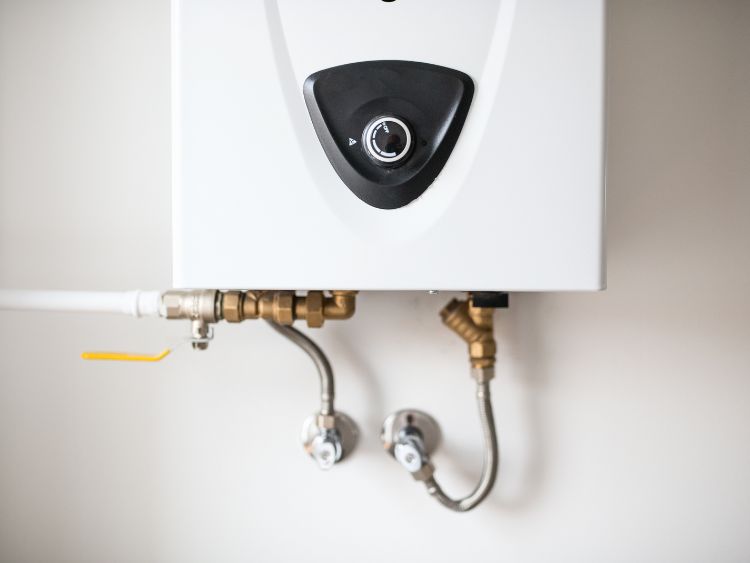Imagine winding through the serpentine mountain roads or cruising the vast, open highways with all the comforts of home following along in your RV. Among these comforts, consistent access to hot water is non-negotiable. Whether for a refreshing shower, washing dishes, or simply heating up a cup of tea, an RV electric water heater ensures you have hot water at your fingertips reliably and efficiently. This article will dive deep into the world of RV electric water heaters, exploring their benefits, installation tips, maintenance, and much more, ensuring you make the best choice for your home-on-wheels.
Understanding RV Electric Water Heaters
RV electric water heaters are a step up in convenience and efficiency from their propane counterparts. They use electrical power to heat water, which is stored in a tank ready for use. Let’s break down why they’re an essential upgrade for your RV.
Benefits of Electric Water Heaters
- Consistent Hot Water Supply: Unlike gas heaters that might falter at high altitudes, electric heaters provide a steady hot water supply.
- Safety: They eliminate the risks associated with propane, such as leaks and fires.
- Eco-friendly: Electric heaters are cleaner for the environment, as they don’t emit carbon monoxide.
- Quiet Operation: They run silently, providing a peaceful and tranquil living environment.
- Low Maintenance: With fewer moving parts than gas heaters, electric versions are typically easier to maintain.
Key Features to Consider
When shopping for an RV electric water heater, consider the following features:
- Capacity: Ranging from 6 to 10 gallons, choose one that suits your water usage needs.
- Recovery Rate: This is how quickly the heater can warm up a fresh tank of cold water.
- Energy Efficiency: Look for models with good insulation to keep water hot, reducing energy consumption.
- Size and Installation Flexibility: Ensure the heater fits comfortably in your RV without requiring major modifications.
- Durability: Opt for stainless steel tanks that resist corrosion and enhance longevity.
Installation Guide
Installing an RV electric water heater can be straightforward if you follow these steps:
- Remove the Old Unit: Disconnect power and water supply, drain the existing tank, and carefully remove the old heater.
- Prepare the Opening: Clean the area and make sure the new heater will fit. Adjust the opening if necessary.
- Connect the Water Lines: Hook up the cold in and hot out lines. Ensure all connections are secure to prevent leaks.
- Electrical Setup: Connect the heater to your RV’s electrical system following the manufacturer’s instructions.
- Test the System: Before hitting the road, fill the tank and test the system for any leaks and ensure it heats water adequately.
Maintenance Tips
To keep your RV electric water heater running efficiently, regular maintenance is crucial. Here’s how you can keep your unit in top shape:
- Regular Flushing: Sediment build-up can reduce efficiency. Flush the tank every few months to keep it clean.
- Check Anode Rod: Replace the anode rod annually to prevent tank corrosion.
- Inspect Electrical Elements: Look for any worn wires or loose connections.
- Winterization: If you’re not a winter traveler, properly winterize your heater to prevent freezing and damage.
Common Questions Answered
FAQs
- How long does it take for an RV electric water heater to heat up? Typically, it takes about 30-60 minutes for a 6-10 gallon tank to heat up fully.
- Can I install an RV electric water heater myself? Yes, with basic DIY skills, you can install the heater yourself by following the manufacturer’s installation guide.
- Do RV electric water heaters use a lot of electricity? They can be efficient, especially models with good insulation and energy-saving features.
- What is the lifespan of an RV electric water heater? With proper maintenance, these heaters can last 10-15 years.
- Are there electric water heaters that also use propane? Yes, combination heaters that use both electricity and propane are available for greater flexibility.
Conclusion
Choosing the right RV electric water heater is about balancing needs with efficiency. Whether you opt for a solely electric model or a hybrid version, the key is ensuring it aligns with your travel habits and comfort requirements. Installation and maintenance don’t have to be daunting tasks. With this comprehensive guide, you are now equipped to handle the basics of your RV’s water heating needs, ensuring hot water is just a tap away, no matter where the road takes you.
Embrace the journey with the comfort and convenience of a reliable RV electric water heater, and turn your road trips into truly homely adventures. Happy travels!


